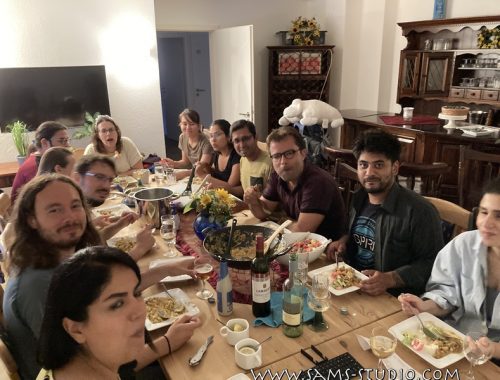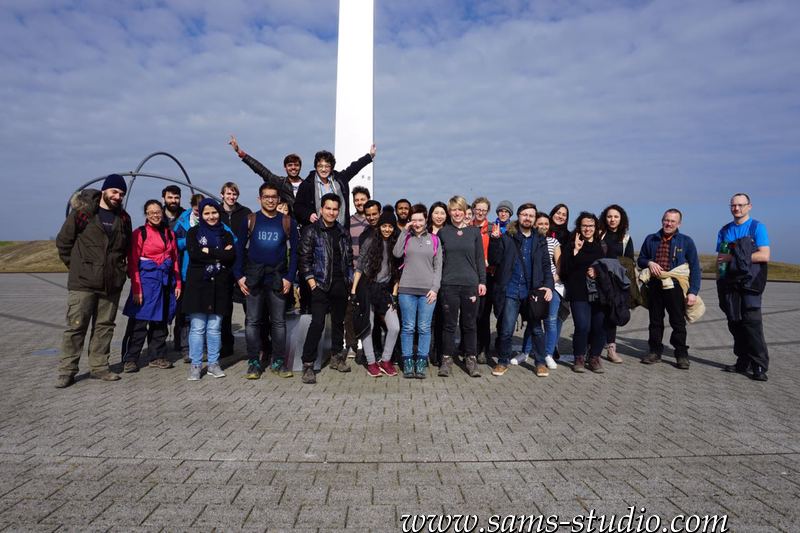
Hiking at Recklinghausen!
This post from BBC shows more or less the situation in Europe last week. My institute, which was around 15 min away from my apartment, appeared suddenly really far away. After going through the streets of Düsseldorf, which offers no mercy to cyclists, my fingers started to freeze by the time I arrived at the institute every day. All this was what it was like until day before yesterday. Yesterday, we saw a sudden temperature rise. And today, despite weather forecast saying it would rain, we had two digit temperature with clear blue sky. Yes, that’s what it must look like in spring.
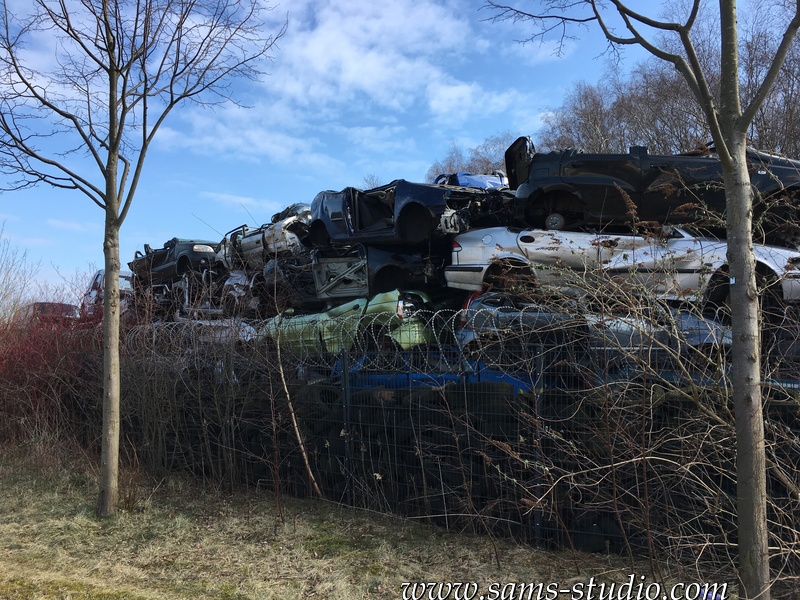
Today’s hike was at Recklinghausen, which no one would associate hiking with. It was only because Jen, who’s been joining us in the last 6 months or so, lives there and suggested a hike near her house. It is an extremely flat region, but it has a couple of artificial mountains, which were formed as a result of coal mining of the Ruhr region.
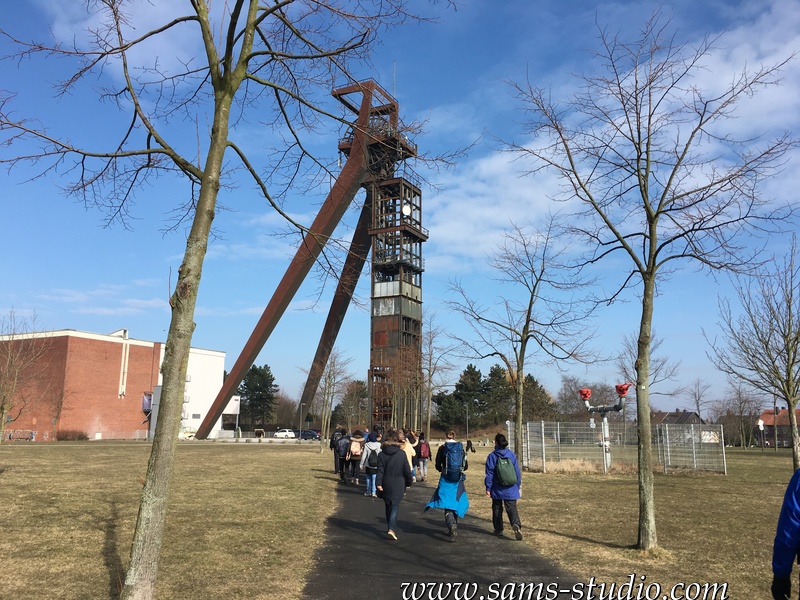
I don’t really remember when was the last time that I came to the station in time. Just as always, I arrived late. No one seems to wonder these days why I’m not arriving in time.
Right after we started at Recklinghausen Süd, we arrived at this artificial mountain. According to Stefan, it was not fertile soil here when it was created, since it was just a by-product of coal mining. Now this place is rather green, although still only modestly. The field on top of the hill looked like a sea side, which fitted well with the wind and noiselessness.
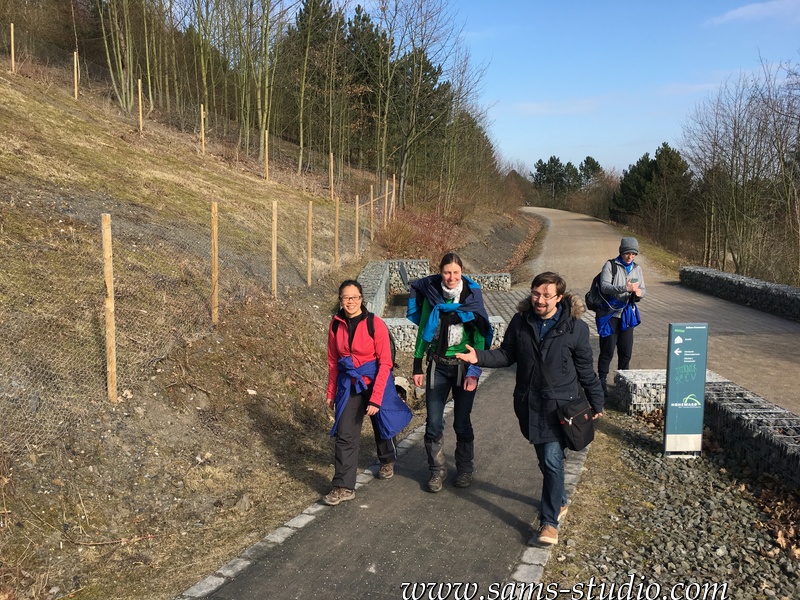
There is this one guy, Ayaz, from Syria, who joined us last time and came this time. Just like many Syrians here, he was from the Kurdish part of Syria. And from the refugees from Afghanistan he apparently learned Persian, which is closely related to Kurdish. He says it is just difficult to quantify the similarity of Kurdish to Persian, as they are not allowed to write or speak in public anywhere in that region, except for north of Iraq. Anyway, I asked him how to say “the weather is good”, which would be “havaa khube” in Persian. In Kurdish it is “donya khoshe”. It might sound completely different from the Persian one, but actually “donya” means “world” in Persian and “khoshe” means something like “it is good” or “it is happy”. So in Kurdish essentially they say “the world is happy” when they mean the weather is good. Such a nice stance. I like it 🙂
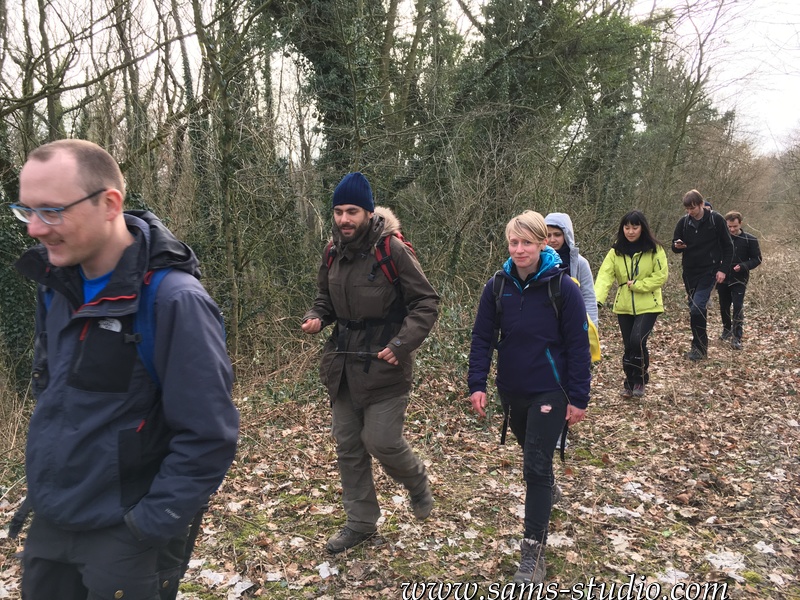
We had a break right after the hill, which was the beginning of a cycling lane/pedestrian path created after the abolishment of a railway line. There are several lines like this in this region, especially after coal mining there were abandoned railway lines.
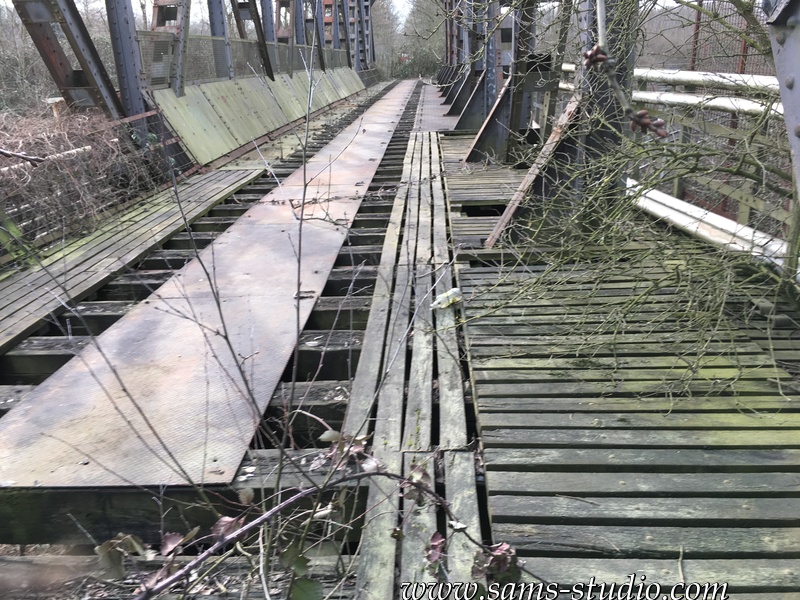
We had to take a rather weird turn in order to reach Recklinghausen at the end, which led to rather uncultivated zone, even though it was clear that there was also a railway there. Then, there was an abandoned bridge, which was obviously closed. I found out later on that it was already indicated on my map that this bridge was not accessible. Anyway, I still crossed it. The bridge looked solid but quite old, so that I wouldn’t have been surprised if it had collapsed. Most of the others took a detour 🙂
We finished at Recklinghausen and went to the local Extrablatt. I guess it was a good walk which marked the end of winter, as we were barely in the wilderness today. Now we can start looking forward to doing more complicated hikes with beautiful nature in the coming weeks.
You May Also Like
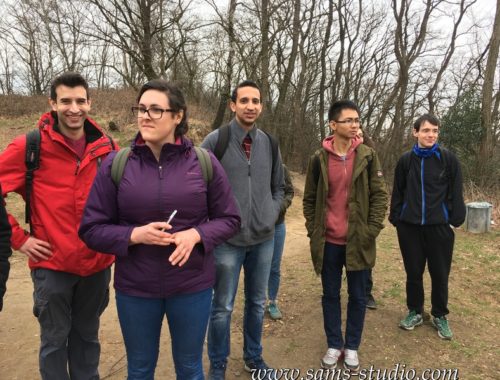
Hiking to Gerresheim!
March 4, 2017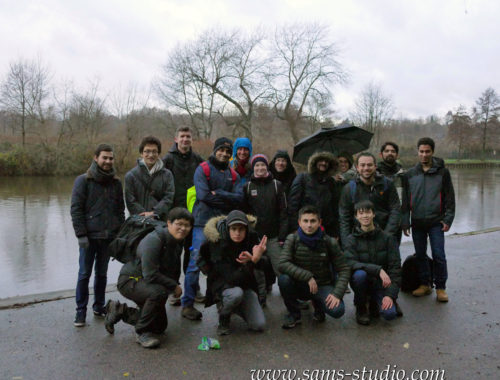
Hiking from Hösel to Mülheim and Christmas market!
December 9, 2018